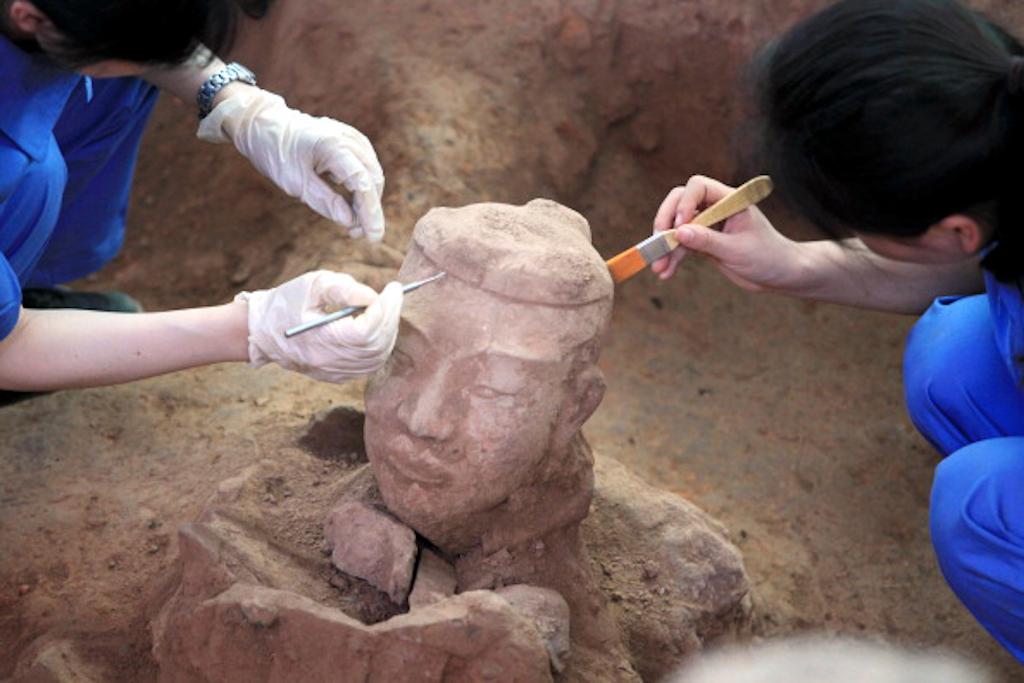China unearths new terracotta warriors in Xi’an (VIDEO)
This picture taken on June 9, 2012 shows Chinese archaeologists at work in the extended excavation of the Pit One of the Terracotta Warriors and Horses Museum in Xian, carefully uncovering using delicate equipment to help preserve the detailed work in their original production more than 2,000 years ago, of the latest terracotta warrior find in Xian, China’s Shaanxi province. Excavations in China have unearthed a stunning new collection of 2,000-year-old terracotta warriors and hundreds of other artefacts, as Chinese archaeologists unveiled 120 new terracotta warriors at the Qin Shihuang Unesco World Heritage site in Shaanxi province.
China has unveiled 110 new terracotta warriors unearthed near the tomb of the first Chinese emperor.
The terracotta army statues, excavated over the course of three years, were created 2,000 years ago to guard the burial site of the Qin Dynasty emperor, outside the present-day city of Xi'an in Shaanxi province.
Archeologists also uncovered 12 pottery horses, parts of chariots, weapons and tools, during an excavation of a 200-square-meter site, Agence France-Presse reported.
"The most significant discovery this time around is that the relics that were found were well-preserved and colorfully painted," Shen Maosheng from the Qin Shihuang Terracotta Warriors and Horses Museum told AFP.
More from GlobalPost: Great Wall of China length announced after five-year study
Emperor Qin Shihuang presided over the unification of China in 221 BC and is seen as the country's first emperor.
The vast terracotta army was discovered in 1974 by local farmers digging a well. It was listed as a UNESCO World Heritage Site in 1987.
The current excavation, which started in 2009, is the third at the site. Previous digs, carried out in 1974 and 1985, uncovered more than 1,000 of the life-size warrior statues, each with unique facial features and hair styles.
The Mail Online reported that archeologists say it will be a challenge to preserve the warrior figures, in particular the color of the terracotta.
More from GlobalPost: Chinese autos suffer the 'fong kong' curse in Africa
We want to hear your feedback so we can keep improving our website, theworld.org. Please fill out this quick survey and let us know your thoughts (your answers will be anonymous). Thanks for your time!
